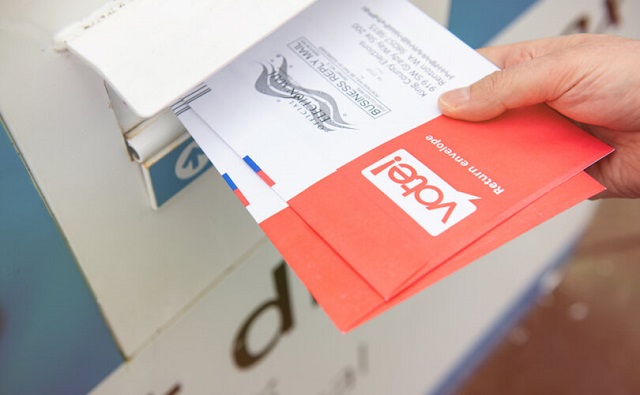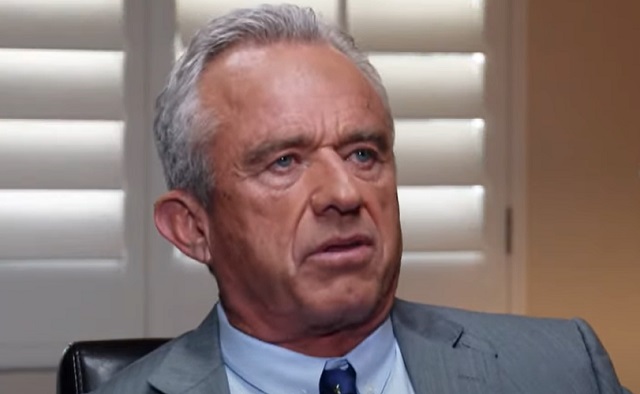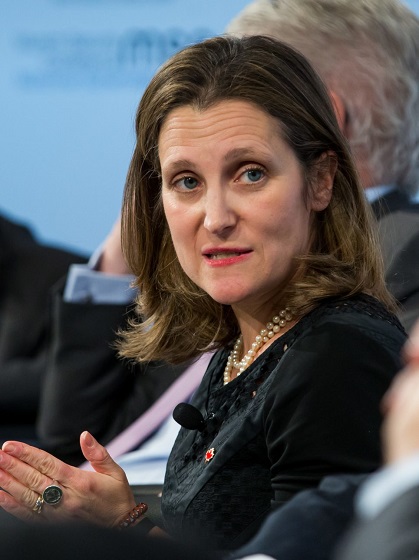Opinion
Overnight sensation known as Oliver Anthony says “I’m not a good musician, I’m not a very good person” as he turns down multi million dollar offer

His real name is Christopher Lunsford. Friends and family just call him Chris. But over the last week or so, millions of people around the world have been introduced to him as Oliver Anthony. That’s because Chris records music under the name of his grandfather, Oliver Anthony, for a youtube channel called RadioWv (Radio West Virginia). Back on August 8, Chris was creating music as a hobby he practiced after work and on days off. But on August 9, a video he recorded for his original song “Rich Men North of Richmond” was loaded on the RadioWv channel. Within hours, Lunsford’s life was turned upside-down.
Chris Lunsford and “Draven” from RadioWv were sure this was a special song and they were hoping maybe something this good could get a few hundred thousands views. Well… 21 million views later, Lunsford has reportedly had to contend with about 50,000 online comments, and consider an 8 million dollar recording contract. Something about this song has touched a nerve.
In case you haven’t heard it yet, here it is on the youtube channel RadioWv. And this is the description put up by RadioWv.
“When I first came across Oliver Anthony and his music, I was blown away to say the least. He had a whole collection of songs that I could listen to for hours. Oliver resides in Farmville, VA with his 3 dogs and a plot of land he plans on turning into a small farm to raise livestock. We have a whole mess of songs set to release of Oliver for your viewing and listening pleasure, he is truly special and notes his biggest influence as Hank Williams Jr. Oliver wants to give hope to the working class and your average hard working young man who may have lost hope in the grind of trying to get by.”
The song is written about the struggles of regular folk in Appalachia, but millions of Americans have adopted it as an anthem for their own lives. The secret sauce behind the success of “Rich Men North of Richmond” certainly has to do with a brilliant title and the haunting melody. But it’s the heartfelt lyrics that strongly challenge political and corporate power structures which seem to be taking the world by storm. It’s kicking up a little storm of controversy too. While many media outlets are calling the song a ‘conservative anthem’, the BBC goes as far as to say the song is “the latest in a series of cultural flashpoints that reflect a deeply divided America.“
As a songwriter, Lunsford has called on a bitter period in his life to come up with lines like these:
“Livin’ in the new world/ With an old soul/
These rich men north of Richmond/ Lord knows they all just wanna have total control/
Wanna know what you think, wanna know what you do/ And they don’t think you know, but I know that you do/
‘Cause your dollar ain’t s**t and it’s taxed to no end/ ‘Cause of rich men north of Richmond.”
Like it or hate it, the song has rocketed to the top of Country Music charts. For his part Christopher Lunsford has made two public statements which are no where near as political as his lyrics. Lunsford recorded the first statement as an update to his sudden success.
Then with the pressure building to address his new audience again, Thursday, Chris Lunsford wrote this thoughtful update on his Oliver Anthony facebook page.
From the Facebook page of Oliver Anthony Music
It will be interesting to see what happens to Chris Lunsford. Certainly at some point soon he’ll accept a contract to make enough money to live a comfortable life far removed from the struggling Appalachian behind “Rich Men North of Richmond”. Millions of new fans affected by his song will hope he never moves too far away.
Automotive
The EV ‘Bloodbath’ Arrives Early

 From the Daily Caller News Foundation
From the Daily Caller News Foundation
By David Blackmon
Ever since March 16, when presidential candidate Donald Trump created a controversy by predicting President Joe Biden’s efforts to force Americans to convert their lives to electric-vehicle (EV) lifestyles would end in a “bloodbath” for the U.S. auto industry, the industry’s own disastrous results have consistently proven him accurate.
The latest example came this week when Ford Motor Company reported that it had somehow managed to lose $132,000 per unit sold during Q1 2024 in its Model e EV division. The disastrous first quarter results follow the equally disastrous results for 2023, when the company said it lost $4.7 billion in Model e for the full 12-month period.
While the company has remained profitable overall thanks to strong demand for its legacy internal combustion SUV, pickup, and heavy vehicle models, the string of major losses in its EV line led the company to announce a shift in strategic vision in early April. Ford CEO Jim Farley said then that the company would delay the introduction of additional planned all-electric models and scale back production of current models like the F-150 Lightning pickup while refocusing efforts on introducing new hybrid models across its business line.
General Motors reported it had good overall Q1 results, but they were based on strong sales of its gas-powered SUV and truck models, not its EVs. GM is so gun-shy about reporting EV-specific results that it doesn’t break them out in its quarterly reports, so there is no way of knowing what the real bottom line amounts to from that part of the business. This is possibly a practice Ford should consider adopting.
After reporting its own disappointing Q1 results in which adjusted earnings collapsed by 48% and deliveries dropped by 20% from the previous quarter, Tesla announced it is laying off 10 percent of its global workforce, including 2,688 employees at its Austin plant, where its vaunted Cybertruck is manufactured. Since its introduction in November, the Cybertruck has been beset by buyer complaints ranging from breakdowns within minutes after taking delivery, to its $3,000 camping tent feature failing to deploy, to an incident in which one buyer complained his vehicle shut down for 5 hours after he failed to put the truck in “carwash mode” before running it through a local car wash.
Meanwhile, international auto rental company Hertz is now fire selling its own fleet of Teslas and other EV models in its efforts to salvage a little final value from what is turning out to be a disastrous EV gamble. In a giant fit of green virtue-signaling, the company invested whole hog into the Biden subsidy program in 2021 with a mass purchase of as many as 100,000 Teslas and 50,000 Polestar models, only to find that customer demand for renting electric cars was as tepid as demand to buy them outright. For its troubles, Hertz reported it had lost $392 million during Q1, attributing $195 million of the loss to its EV struggles. Hertz’s share price plummeted by about 20% on April 25, and was down by 55% for the year.
If all this financial carnage does not yet constitute a “bloodbath” for the U.S. EV sector, it is difficult to imagine what would. But wait: It really isn’t all that hard to imagine at all, is it? When he used that term back in March, Trump was referring not just to the ruinous Biden subsidy program, but also to plans by China to establish an EV-manufacturing beachhead in Mexico, from which it would be able to flood the U.S. market with its cheap but high-quality electric models. That would definitely cause an already disastrous domestic EV market to get even worse, wouldn’t it?
The bottom line here is that it is becoming obvious even to ardent EV fans that US consumer demand for EVs has reached a peak long before the industry and government expected it would.
It’s a bit of a perfect storm, one that rent-seeking company executives and obliging policymakers brought upon themselves. Given that this outcome was highly predictable, with so many warning that it was in fact inevitable, a reckoning from investors and corporate boards and voters will soon come due. It could become a bloodbath of its own, and perhaps it should.
David Blackmon is an energy writer and consultant based in Texas. He spent 40 years in the oil and gas business, where he specialized in public policy and communications.
Business
Honda deal latest episode of corporate welfare in Ontario

From the Fraser Institute
By Jake Fuss and Tegan Hill
If Honda, Volkswagen and Stellantis are unwilling to build their EV battery plants in Ontario without corporate welfare, that sends a strong signal that those projects make little economic sense.
On Thursday, the Trudeau and Ford governments announced they will dole out an estimated $5 billion in corporate welfare to Honda so the auto giant can build an electric vehicle (EV) battery plant and manufacture EVs in Ontario. This is the third such deal in Ontario, following similar corporate welfare handouts to Volkswagen ($13.2 billion) and Stellantis ($15.0 billion). Like the previous two deals, the Honda deal comes at a significant cost to taxpayers and will almost certainly fail to create widespread economic benefits for Ontarians.
The Trudeau and Ford governments finalized the Honda deal after more than a year of negotiations, with both governments promising direct incentives and tax credits. Of course, this isn’t free money. Taxpayers in Ontario and the rest of Canada will pay for this corporate welfare through their taxes.
Unfortunately, corporate welfare is nothing new. Governments in Canada have a long history of picking their favoured firms or industries and using a wide range of subsidies and other incentives to benefit those firms or industries selected for preferential treatment.
According to a recent study, the federal government spent $84.6 billion (adjusted for inflation) on business subsidies from 2007 to 2019 (the last pre-COVID year). Over the same period, provincial and local governments spent another $302.9 billion on business subsidies for their favoured firms and industries. (Notably, the study excludes other forms of government support such as loan guarantees, direct investments and regulatory privileges, so the total cost of corporate welfare during this period is actually much higher.)
Of course, when announcing the Honda deal, the Trudeau and Ford governments attempted to sell this latest example of corporate welfare as a way to create jobs. In reality, however, there’s little to no empirical evidence that corporate welfare creates jobs (on net) or produces widespread economic benefits.
Instead, these governments are simply picking winners and losers, shifting jobs and investment away from other firms and industries and circumventing the preferences of consumers and investors. If Honda, Volkswagen and Stellantis are unwilling to build their EV battery plants in Ontario without corporate welfare, that sends a strong signal that those projects make little economic sense.
Unfortunately, the Trudeau and Ford governments believe they know better than investors and entrepreneurs, so they’re using taxpayer money to allocate scarce resources—including labour—to their favoured projects and industries. Again, corporate welfare actually hinders economic growth, which Ontario and Canada desperately need, and often fails to produce jobs that would not otherwise have been created, while also requiring financial support from taxpayers.
It’s only a matter of time before other automakers ask for similar handouts from Ontario and the federal government. Indeed, after Volkswagen secured billions in federal subsidies, Stellantis stopped construction of an EV battery plant in Windsor until it received similar subsidies from the Trudeau government. Call it copycat corporate welfare.
Government handouts to corporations do not pave the path to economic success in Canada. To help foster widespread prosperity, governments should help create an environment where all businesses can succeed, rather than picking winners and losers on the backs of taxpayers.
Authors:
-

 espionage9 hours ago
espionage9 hours agoOne in five mail-in voters admitted to committing voter fraud during 2020 election: Rasmussen poll
-

 Business8 hours ago
Business8 hours agoHonda deal latest episode of corporate welfare in Ontario
-

 COVID-191 day ago
COVID-191 day agoTrudeau gov’t has paid out over $500k to employees denied COVID vaccine mandate exemptions
-

 International1 day ago
International1 day agoRFK Jr tells EWTN: Politicization of the CIA, FBI, Secret Service under Biden is ‘very troubling’
-

 Opinion2 days ago
Opinion2 days agoThe Climate-Alarmist Movement Has A Big PR Problem On Its Hands
-

 Brownstone Institute2 days ago
Brownstone Institute2 days agoThe Teams Are Set for World War III
-

 Alberta2 days ago
Alberta2 days agoFormer senior financial advisor charged with embezzling millions from Red Deer area residents
-

 Frontier Centre for Public Policy2 days ago
Frontier Centre for Public Policy2 days agoBudget 2024 as the eve of 1984 in Canada











